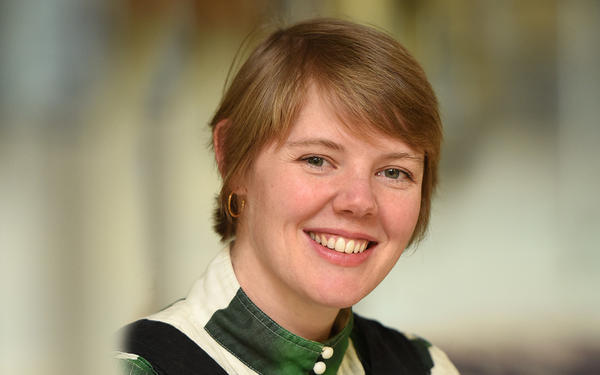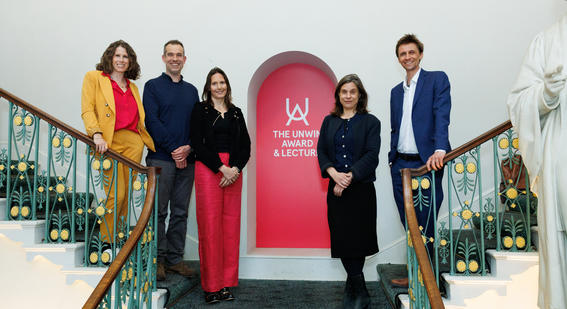News and Events
First digital sustainability lead
We have taken a bold step towards embedding environmental sustainability into digital product innovation with the appointment of a new Digital Sustainability Lead – Andri Johnston. Focused on the needs of our learners, authors and customers, the new role supports our ambitions to increase our sustainability as well as create accessible products that also reflect the global community we serve.

As we move toward providing even more world-class research, publishing learning materials, assessments and other resources online, it is increasingly important we understand and reduce carbon emissions related to our digital products.
To meet this challenge in delivering on our commitments to sustainability, including achieving carbon zero on our energy-related emissions by 2048, we have appointed Andri Johnston as our first Digital Sustainability Lead. The role will help us find ways to cut carbon emissions created from our own use of software and apps as well as by end-users of our digital products.
Our recent digital innovations in education, for example, have helped to enhance engagement in both remote and in-person classes, promote a more conducive learning environment for students, and greatly improve both security and management efficiency.
As our digital offer grows, which includes the platforms Cambridge GO, CogBooks, Cambridge Core and Cambridge Advance Online, we recognise we must also act responsibly by minimising any long-term impact on the environment use of information technologies may have.
Making a difference - byte by byte
Andri, alongside our Chief Technology Officer Architecture & Direction, Julie Dennis, is already working closely with our technology teams to get robust data and insights into the impact of our digital activities, engage with top technology suppliers on carbon reduction strategies; and produce recommendations, guidance and training for colleagues.
Andri said:
I believe all of us working in this digital industry have the power to make a difference. We can do that by being digital sustainability stewards – by being mindful of how we create digital products and what we put out there. It takes time to measure carbon emissions, so in the meantime we are empowering our digital teams to improve our digital products using the tools and insights we have.
We have already made progress, with detailed analysis of carbon data illustrating practical ways university presses can cut their carbon footprint as well as producing robust results on the difference in emissions produced by in-person and virtual conference participants.
Andri continues: “We’ve started with a tool called DIMPACT which allows us to input data then calculate the carbon emissions from our digital products and websites, hosting and users. We can then identify which areas emit the most emissions and work on how we can improve these areas. We will support our digital and product teams with better digital sustainability standards and guidelines.”
Andri has been working with colleagues across Cambridge to reduce the environmental impact of digital products since 2019. She moves into this new role in our technology team from academic publishing where she was Digital Projects and Open Access Books Editor.
Our commitment to sustainability
The Digital Sustainability Lead position is one of several new roles created to support us with our sustainability goals, such as the appointment of our first global director for climate education in 2022.
We have made a series of public commitments to sustainability, including our participation in the UN Global Compact and as a signatory of the UK Publishing Association’s sustainability pledge Publishing Declares. We have earned recognition for our environmental performance of our UK operations which are certified to the international best practice standard ISO14001 and were shortlisted three years in a row for the UK Independent Publishers Guild’s annual sustainability award, winning twice.





